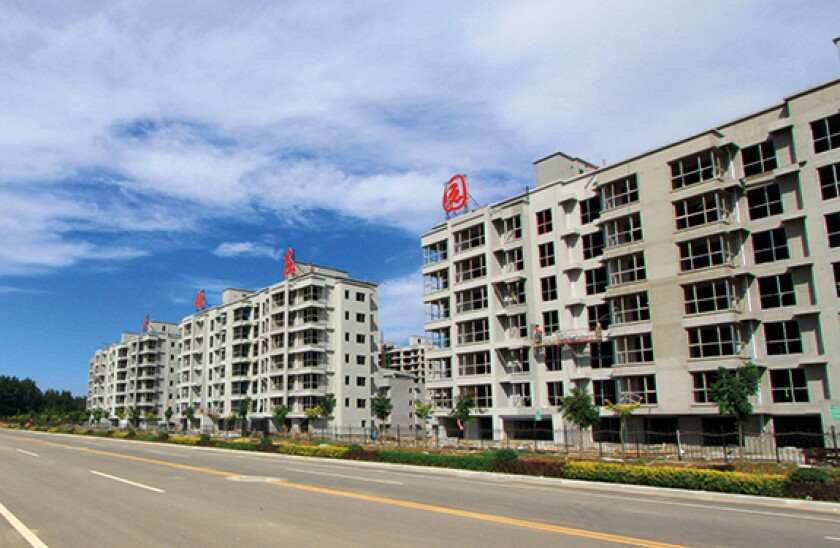China, which the world had hoped would lead the global economy back to recovery, is falling behind Asian neighbours in generating growth and creating more economic problems than it solves.
Growing internal debt stress and an economic slowdown in China are starting to deter investors and threaten global output, according to experts gathered at the IMF and World Bank annual meetings.
A real estate crisis has left China strewn with unfinished construction projects. Signs of distress spreading to stronger developers pose “an important risk” to the global economy if the crisis deepened, the International Monetary Fund said on Tuesday in its latest World Economic Outlook.
It estimates China’s economy will grow 5% this year but slow to 4.2% next year. That compares with 4.8% for emerging and developing Asia next year and 6.3% for India.
In a muted Golden Week holiday, tourists’ spending in the eight days to October 6 was just 1.5% above the 2019 level, at $103bn.
While most emerging markets showed “resilience and surprised on the upside” this year, China faces “growing headwinds” and “weakening confidence”, the IMF said.
Worse, for a capital-intensive economy, global investors are losing faith. In August, $49bn fled the country — the highest monthly outflow since 2015 — of which $29bn comprised securities investments, according to the State Administration of Foreign Exchange.
“China is growing slowly, it has a lot of risks and a lot of firms that cheat then de-list — why invest there when you can make 5% in the US?” asked Anne Stevenson-Yang, research director at J Capital Research in New York, which studies China-listed companies. “Its story is like air coming out of a balloon: it’s becoming softer and more unattractive.”
The nation’s ills are almost too many to count. In the book Invisible China, published in 2020, Scott Rozelle and Natalie Hell noted that just 30% of its labour force had finished high school, putting it behind all other middle income countries.
Stevenson-Yang said health, education and nutrition were all at low levels, with 60% of people not competent to do basic factory work. “It will have tremendous difficulty continuing to grow when so many people can’t contribute to a sophisticated and advanced workforce,” she said.
‘Too optimistic’
What China always had going for it was global firms and investors believed in its story. It remains a manufacturing giant and is already the world’s leading maker of electric vehicles.
But the shine is fading fast. “China’s post-pandemic recovery has disappointed all expectations,” with the property sector acting as a drag “on household consumption, construction, local government revenue and financial services,” said Katrina Ell, director of economic research at Moody’s Analytics in Sydney.
Even this year’s official 5% growth rate was supposed to be an “easy win”, she added, given the economy’s “woeful performance in 2022”, when President Xi Jinping stuck doggedly to his ‘zero Covid’ policy.
Andrew Collier, China country analyst at research firm GlobalSource Partners, said analysts had always been “too optimistic” about the strength of the post-Covid-19 rebound.
He sees debt as the country’ biggest problem. “There is little room in the economy, either among the local and central government, businesses, or consumers, to borrow for investment or consumption.”
He argued a structurally imbalanced economy, a flailing property sector, torpid growth and savings rising at the expense of spending explained why foreign investors were “not comfortable making long term bets on the Chinese economy”.
Collier concluded: “Unless the political, legal and economic situation changes in China, the days of China as the star success story in global growth are over.”
